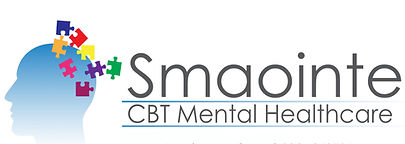"Core Beliefs: A Lens Through Which We Experience Life" - Noel Dillon-Daly
- Katrina Dennehy
- May 9, 2024
- 2 min read

Core beliefs are the deeply ingrained convictions about oneself, others, and the world that shape our perceptions, emotions, and behaviours. They serve as the lens through which we interpret experiences and influence how we respond to life's challenges. In the realm of mental health, core beliefs play a pivotal role in shaping one's overall well-being, affecting everything from self-esteem to resilience in the face of adversity.
Consider two individuals, John and Michael, who both experience the disappointment of not getting a job after an interview. John holds the core belief that "I am a failure," while Michael's core belief is "I am a success."
For John, the experience reinforces his preexisting belief that he is inherently inadequate. He interprets not getting the job as confirmation of his unworthiness, leading to feelings of despair, low self-esteem, and perhaps even hopelessness about his future prospects. His negative outlook may further perpetuate a cycle of self-doubt and avoidance of future opportunities, as he anticipates failure regardless of his efforts.
On the other hand, Michael's core belief in his own success shapes his interpretation of the situation differently. Despite the setback of not securing the job, he maintains confidence in his abilities and views the experience as a temporary setback rather than a reflection of his worth. Michael may feel disappointed, but he is resilient and motivated to learn from the experience, adapt his approach, and pursue other opportunities with optimism and determination.
Cognitive Behavioural Therapy (CBT) offers a practical and effective approach to help individuals like John challenge and change their core beliefs. Through CBT, individuals learn to identify and examine the underlying thoughts and beliefs that contribute to their emotional distress and maladaptive behaviours. Here's how CBT can help John challenge his core belief of "I am a failure":
Identifying Core Beliefs: John would work with a therapist to identify his core belief that he is a failure and explore its origins and impact on his life.
Examining Evidence: With the guidance of his therapist, John would examine the evidence for and against his core belief. He would challenge his automatic negative thoughts by looking for instances in his life where he has succeeded or demonstrated competence.
Generating Alternatives: John would learn to generate alternative, more balanced interpretations of his experiences. Instead of viewing not getting the job as a reflection of his worth as a person, he might consider external factors such as the competitiveness of the job market or the specific requirements of the position.
Behavioural Experiments: John would engage in behavioural experiments to test the validity of his core belief. This might involve applying for other jobs, seeking feedback, and observing how different outcomes impact his beliefs and emotions.
Replacing Maladaptive Beliefs: Through consistent practice and cognitive restructuring techniques, John can gradually replace his maladaptive core belief with healthier, more empowering beliefs such as "I am capable of learning and growing from setbacks" or "My worth is not determined by external validation."
By challenging and changing his core belief, John can experience significant improvements in his mental health and overall well-being. He can develop greater resilience, self-confidence, and a more positive outlook on life, enabling him to navigate future challenges with greater ease and adaptability.
_edited_edited.jpg)

Comments